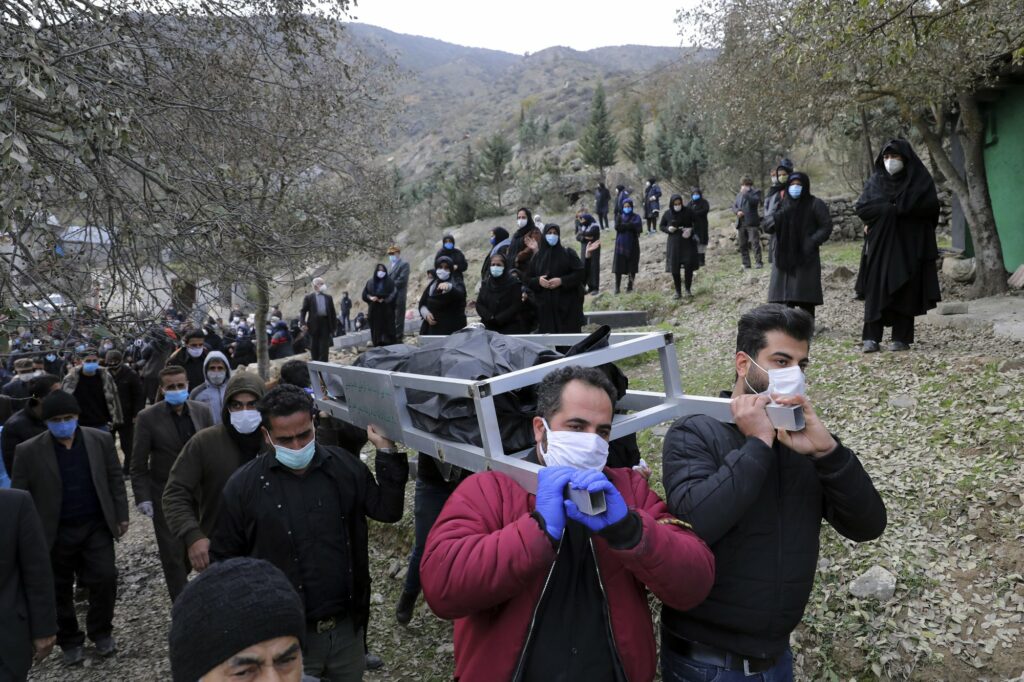Deep in the lush valleys of northern Iran, where the Alborz Mountains crumble toward the sea, Ali Rahimi takes up his grisly work.
Day in and day out, Rahimi, a 53-year-old volunteer cleric in the city of Ghaemshahr, puts on his hazmat suit and receives the deceased; disinfecting, washing and shrouding the dead bodies in white cloth.
The northern province of Mazandaran, with its forests and farmland, is a four-hour drive from Tehran, the capital, where half of the country’s coronavirus deaths are concentrated. Hospitals in the city of 10 million are coming under strain and the capital’s vast cemetery is struggling to keep pace with the dead. As the virus ripples across the country, killing over 54,000 people in what has become the Middle East’s worst outbreak, the bucolic countryside has not been spared.
Grave diggers in Mazandaran say that hundreds have died, but numbers are difficult to verify because Iran’s Health Ministry stopped releasing a breakdown by province. A popular vacation spot lined with hotels, villas and cafes along the Caspian Sea, Mazandaran draws throngs of Tehran residents seeking a break from the city’s pressures. Despite sporadic travel bans, the steady stream of visitors from major cities has helped spread the virus deep into the province’s rural corners, thick with rice fields and tangerine orchards.
In the early days of the pandemic, authorities feared burials would risk contagion. But Rahimi and his colleagues soon learned how to properly wrap and transport the bodies of those who died of COVID-19, providing some ritual and relief to bereaved loved ones.
After noon prayers, families arrive at the cemetery along with the ambulances. Rahimi and his medical team prepare each body for the cleansing required for the Muslim dead, which now involves disinfectant. Male relatives, many wearing masks and gloves, carry the body aloft for a brief ceremony back at the village. Women in traditional black chadors bend their knees, arch their backs and weep over the grave. Some cry out, raising their arms to the sky. No one may touch the body.
Rahimi tries to keep his work efficient and unsentimental, retrieving and washing the corpse, sprinkling white lime powder over the loose dirt, carefully placing the body inside the pit. There is haste around death: In Islam, burial should be done as soon as possible, preferably within 24 hours. At the end of the day, Rahimi sets fire to his contaminated gear.
Rahimi often thinks about the families, like the 50-year-old mother, Parvin Enayati, who died of the virus just days after her older relative who she had visited in the hospital. His only comfort, he said, comes from G-d, and the sense that he is smoothing the passage of the dead into the next world.
(AP)











